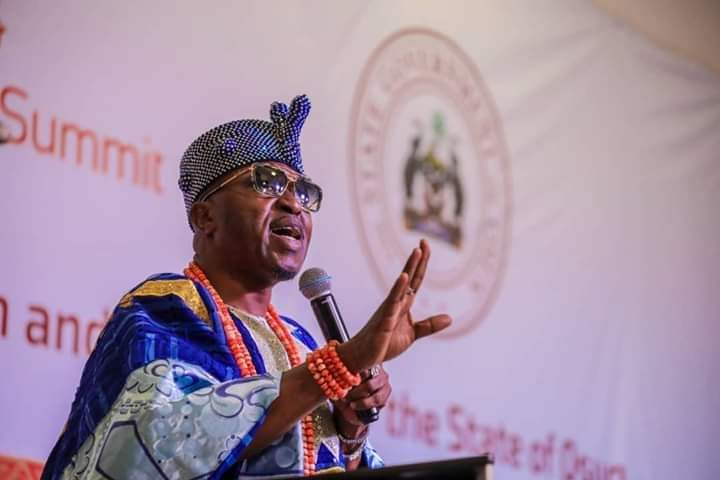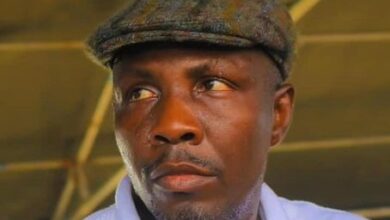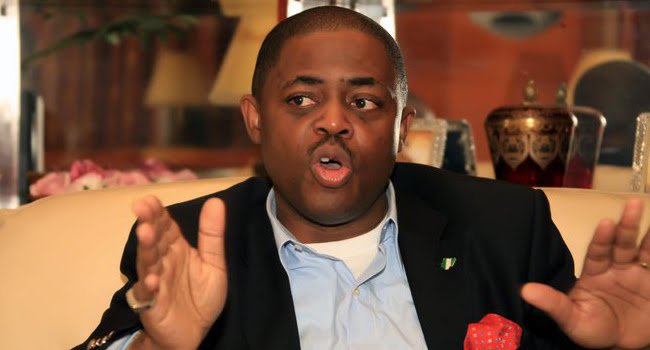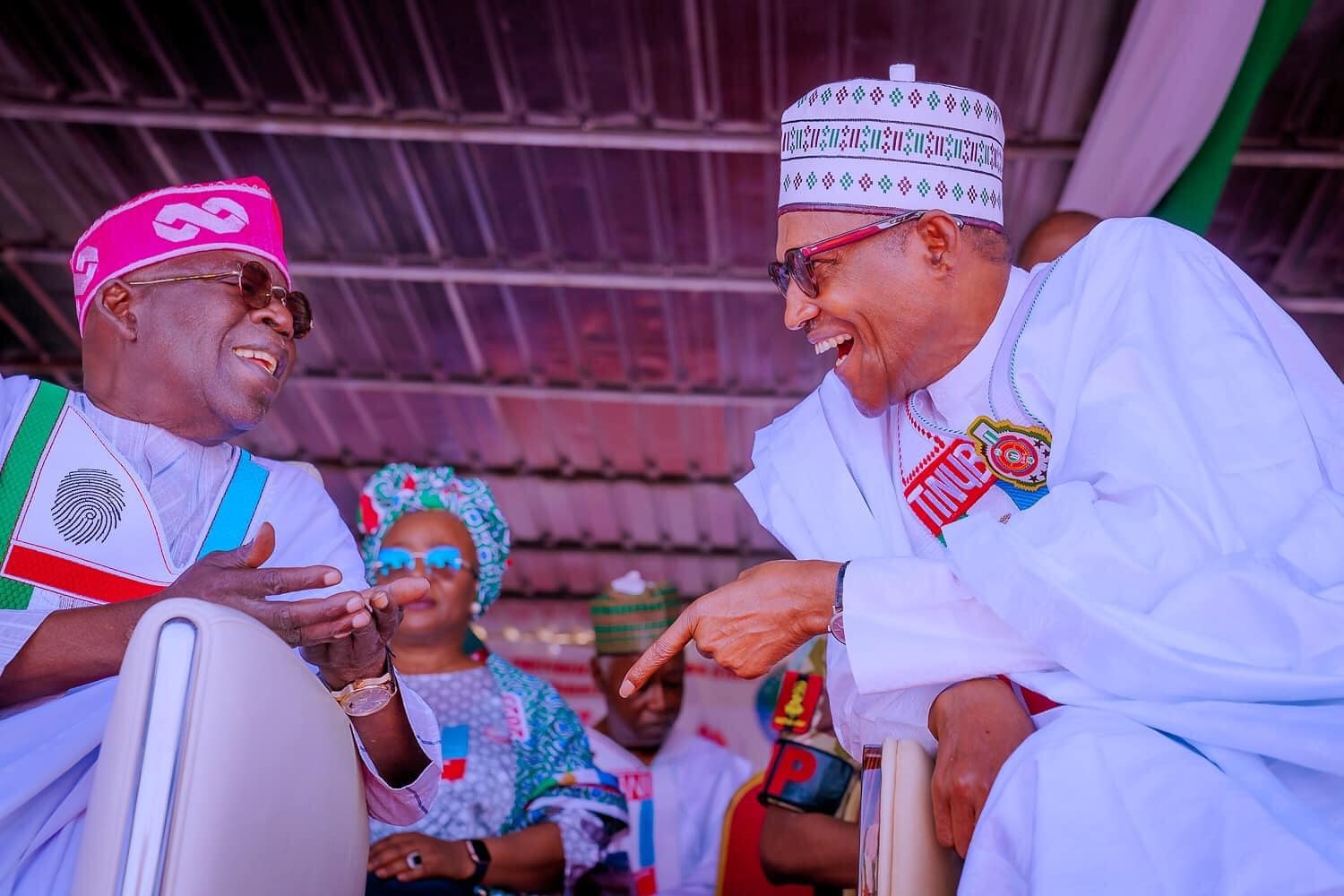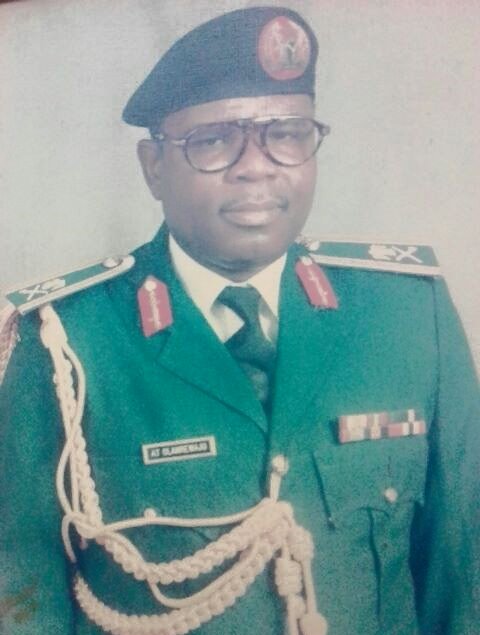


Late Chief Gani Fewehinmi, SAM, SAN, long before his demise had blamed Nigeria and its people for being fond of appreciating their heroes only after they had passed on. That position by Fawehinmi has been understood by this 10-month-old online newspaper, The DEFENDER, to mean that the best thing that any society like Nigeria can do to encourage its heroes is, not only to appreciate them while they are alive but also that, their experiences in life should be tapped into for comprehensive and inclusive developmental project of achieving a New Nigeria. Reminiscence of this informed the decision of the online media management to seize the forthcoming 71st birthday anniversary of former Minister of Communications and member of Provisional Ruling Council (PRC) of the Federal Republic of Nigeria, Major General Tajudeen Olanrewaju (Rtd) as a case study to appreciate one of Nigeria’s most distinguished professional soldiers that Lagos State has ever produced.
Major General Adeniyi Tajudeen Olanrewaju (Rtd) psc (+), ndc, M.Sc, was born on 8th May 1946 believed to be the time Harbert Macaulay died. This explains why he was nicknamed ‘Macaulay’ and that used to be Tajudeen Olanrewaju’s nickname for a long time and it was because Lagos was a very small place in terms of population and the families there in those days interconnected to one another. He was fortunate to have also been born in a place that was very known, No.3 Koilo Street, Isale Gangan, Lagos, where families lived together as a unit.
In summary, Tajudeen Olanrewaju, going by the four cardinal points of a family set up, can be said to be that he has a very great and glorious family background. From the father’s side he has the Asunmo Animashaun, which arguably is the largest family in Nigeria today and most especially in Lagos. Record shows that, as at September 2011, the Animashaun family of Lagos had almost 10,000 members and even up till today they still relate very well together and know one another. He was born to the family of late Alhaji Abdul Yakeen Olanrewaju Animashaun and late Alhaja Muyinatu Abeni Sunmola Shanu (Baba Alagbede) of Onikate Court, Isale Eko. Alhaja Muyinatu Abeni Sunmola Shanu was an Awori by birth and descendant of Ilu Obi Branch of Kuyasi – Awuse Royal dynasty of Onigbongbo. His late great grandmother, Rabiatu Ibiduni Fashina, was also a direct descendant of Princess Apotun Dosunmu: direct daughter of the late King Dosunmu of Lagos. His father, late Olanrewaju, came from the prominent Muritala Animashaun’s family of Lagos. His paternal grandmother, late Alhaja Safuratu Animashaun (Mama Saro), hailed from Adeshakin/Olubuse Ruling House of Ile-Ife. From historical perspectives, his parents were descendants of prominent Lagos and Yoruba families.
Tajudeen Olanrewaju started his primary education at Ireti Primary School, and completed it at Saint Savior Primary School, both in Lagos Island, from 1952 to 1959. He got admission into Ahmadiyya College, Agege, which happened to be the first Muslim college in Nigeria. Ahmadiyya was the college choice for most Muslim families in the country. It is one of the reasons Adeniyi Tajudeen Olanrewaju would look back to his background, his growing up during his early education and say, “I am very satisfied and fulfilled.” Tajudeen passed out successfully from Ahmadiyya College, with West African School Certificate and by the end of 1966 he had obtained his ‘A’ Level results.
After leaving Ahmadiyyah College, Olanrewaju got employment with the ECN (Electricity Corporation of Nigeria), which had gone through different reforms today. He believes that his concurrent football career playing for the ECN was responsible for why he did not proceed immediately for further studies because he was successful while playing football.
Tajudeen Olanrewaju was a brilliant footballer and played with the Nigerian Academicals that defeated Ghana’s Academicals at home and away matches. He played alongside football legends such as Tunde Disu (former Chief Coach of the Flying Eagles), Ismaila Mabo (former Coach of the Super Falcons), Muyiwa Oshode, Tony Igwe and the late Garba Okoye (Sam Garba) and Olowo Oshodi. While working in the ECN after his secondary education, Tajudeen played with the legends like Omokachie, Broadrick, Rigogo, late Paul Hamilton (former Super Eagles coach) and the late Godwin Achebe, for a while. During this period he featured in newspaper articles.
Beginning to see himself and his future in the academics and looking back to where he was coming from, however, Tajudeen decided to leave the ECN and seek for greener pasture. He therefore decided to join the Nigerian Army at a time the country was going through serious national crisis, which later led to the Civil War.
At that time he saw a newspaper advertisement for enlistment into the Nigerian Defence Academy (NDA) and he applied and completed the process for entry for the short service. The qualification for entry to the short service was West Africa School Certificate (WASC), HSE, or ‘A’ Level and already he had WASC and ‘A’ Level at the point of entry. As at that time the Nigerian Armed Forces did not have enough officers to lead to prosecute the war. So all they then did was to look for young people they could train.
General Olanrewaju belonged to the first set of Lagos indigenes selected to train in NDA just after the creation of the state in 1967. Among his colleagues from Lagos State were Brigadier General Femi Williams, Segun Joe and Williams Tunji Taiwo. There were very few senior officers of Lagos origin, who were in service before this time. In February 1968, he was commissioned into the 2nd Field Battery of the Nigerian Army Corps of Artillery and deployed immediately to the war front in Onitsha and its environs from 1968 to 1970.
Although circumstances took Olanrewaju to the Nigerian Army Corps of Artillery as a young officer just coming from the college, the corps ended up being a memorable experience in his life because, when asked, he once said he did not regret any minute that he spent in the Corps. He possibly had his reason: Tajudeen rose from the beginning as a young officer to the top as Commander of Corps of Artillery.
After the civil war, he left for further professional training at the Royal School of Artillery, Larkhill, in England. He returned later in 1971 and proceeded again to the Field Artillery School at Lawton, Oklahoma, USA. On his return, he held staff appointments of Grade 1 & 2 and was severally Commanding Officer of Artillery Regiments at various times. He further served as a Deputy Defence Adviser in the Nigerian Embassy in Moscow from 1975 to 1977.
Following the Federal Government’s decision to upgrade the professional training establishments and reduce cost of overseas training, General Olanrewaju was among the first set of Officers, who attended Army Command and Staff College from 1977 to 1978. On completion, based on merit as a Major, he was appointed the Acting Commander 3rd Division Artillery, Jos from 1978 to 1980. He left the appointment to work as a Principal Staff Officer at the Headquarters Corps of Artillery in Bonny Camp, Victoria Island Lagos. For his exemplary performance, as a student at the staff college, he was made a directing staff (teaching) at the senior level from 1983 to 1986 and awarded psc (+).
On completion of his teaching assignment, he was posted to the Nigerian Army School of Artillery, Kachia, Kaduna State, where he became the Commandant of the school. At this time, he was promoted to the rank of full Colonel. He left Kachia in 1988 and assumed the Command of 35 Air Defence Artillery Brigade in Akure, in the old Ondo State (with present Ekiti State inclusive) during which he also served as Acting Military Governor of the old Ondo State when the substantive Military Governor, then Navy Captain Olabode Ibiyinka George was on his annual leave. He was in charge of the Air Defence of the entire country. His period here witnessed the ceding of the Epe Military Cantonment (an Artillery unit located there), spearheaded by Governor Sir Michael Otedola for the Lagos State University’s engineering campus.
As a result of his competitive spirit and performance, he was selected in 1990 to attend the National Defence College, New Delhi, India established by Nehru in 1948. Its equivalent institutions are like the Royal College of Defence Studies, United Kingdom, and American Military University, in USA. This are very high professional defence institutions for the top echelon of the military, civil servants and technocrats in their respective countries.
On completion of his studies in National Defence College, he was awarded ndc insigna and M.Sc in Strategic Studies. He returned from India in 1991 and was appointed Commandant of the Corps of Artillery and School, which made him the professional head of the Artillery of the Nigerian Army. He was this time promoted to Brigadier-General. He later became the General Officer Commanding (GOC) the 3rd Armoured Division and member of the Provisional Ruling Council (PRC). He served as GOC for over two years between 1983 to 1985.
Olanrewaju was appointed Minister of Communications and member of the Federal Executive Council from 1995 to 1997. He pioneered the current de-regulation in the telecommunications sector and upgraded the communications system in different parts of the country. This brought in private telecommunication operators (PTOs) such as Multi-links, Starcomms and Intercellular. During his time as Minister, he laid the submarine optic cable from Lagos to Calabar.
While in service, General Olanrewaju served on national and international assignments. He was Chairman, States Assets Sharing Committee and also Chairman of the Review Committee which prepared the White Paper on General Abisoye’s report on the NNPC. He was up to a time a permanent member of the Nigerian team, led by the late General HB Haladu, on the Co-operating D-8 Islamic Countries based in Turkey. These were considered as Extra-Regiment duties outside the Military Establishment.
His military career was not without its challenges. The greatest one occurred in 1997, when he was arrested over the phantom coup along with other senior military officers and was sentenced to death. But Allah in His infinite mercies caused a change in government in 1999 and used the Head of State, General Abdulsalami Abubakar, to release him and others after 14 months of incarceration. This granted him a new lease of life which he has dedicated to serving the down trodden and humanity, in appreciation of God’s goodness to him.
General Tajudeen Olanrewaju served the Nigerian Army brilliantly and meritoriously for 30 years (1967 to 1977) and is now in private business. He has received numerous awards in the course of his service, which include Merit Award of the Yoruba Council of Elders (YCE), Ibile Forum Golden Award and Security Efforts Award during the 30 years commemoration of Lagos State in 1997.
General Olanrewaju is married to Oluyemisi and is blessed with children and grandchildren. He remains one of the most distinguished professional soldiers that Lagos State has ever produced.
Fondly called “Gasper on the football field and General in the battle field of war”, The DEFENDER wishes the fine officer a happy 71st birthday in advance!



